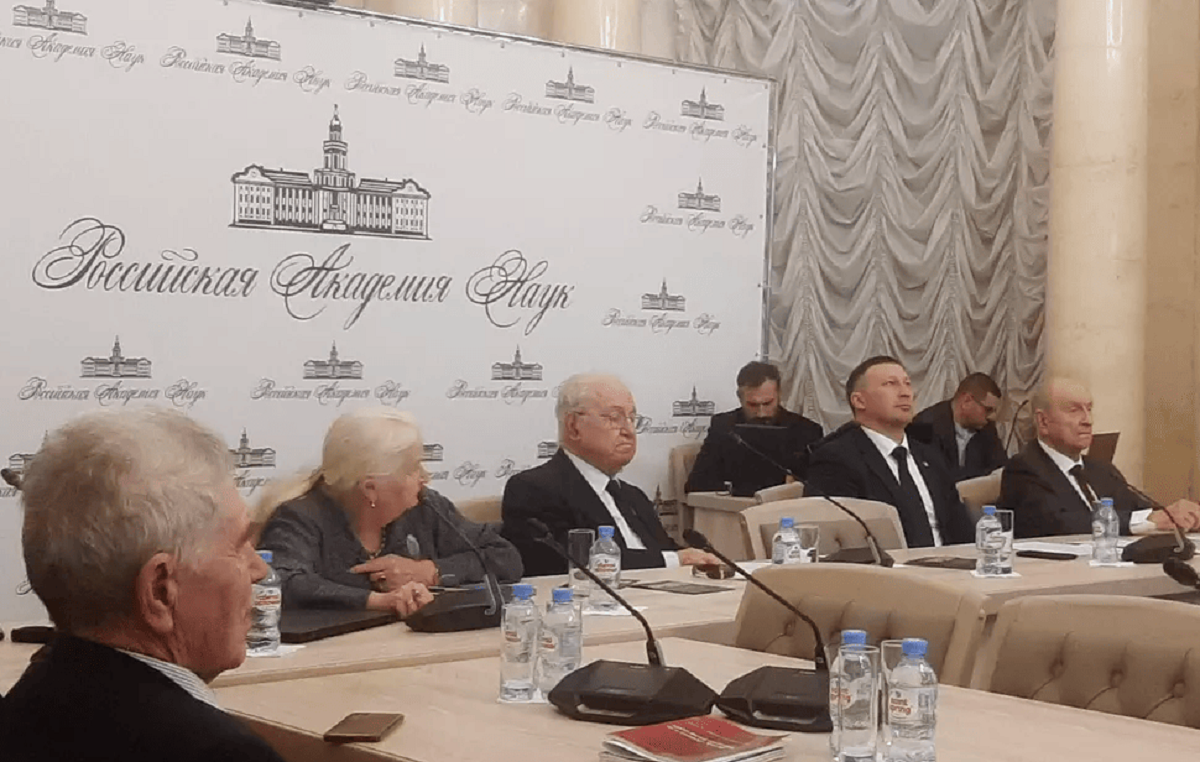RIA Novosti: Member of the Russian Academy of Sciences assesses possibility to model artificial consciousness
In future, scientists may model and implement artificial consciousness. Yet, it is not a good idea as it may lead to unintended consequences. It is better to focus on the evolution of artificial intelligence systems as cognitive unconscious systems, said Konstantin Anokhin, Director of the Institute for Advanced Brain Studies at Lomonosov Moscow State University, Member of the Russian Academy of Sciences, and neurophysiologist.

"Artificial consciousness is achievable. We can model AI consciousness using the algorithm of cognitive accretion (addition — Editor’s note). Yet, shall we? No. AI consciousness is risky. We cannot predict its performance and what it can lead to," said Konstantin Anokhin to the Russian state news agency RIA Novosti after his report "The facets of consciousness in natural and artificial systems" at the international interdisciplinary conference "Artificial Intelligence and Consciousness" in the Presidium of the Russian Academy of Sciences.
What we should focus on is to think about how to develop AI systems as cognitive unconscious systems, said Konstantin Anokhin. The responsible AI requires incorporating the issues relating to consciousness, he added.
What scientists have been predicting, starting with the fathers of artificial intelligence, about whether AI will ever be conscious diverges. Some scientists say that large language models (chatbots) already have subjective experience, some predict that AI will be conscious in the coming decades, while others say that AI will be conscious only in the distant future, more than 50 years from now. Konstantin Anokhin explains this divergence of views by insufficient understanding of how large language models and our consciousness work. What is needed is a scientific theory of consciousness, which will be built relative to natural consciousness.
Konstantin Anokhin offers his own solution, i.e. "cognitome theory, that is an algorithmic theory of constructing cognitive systems." It explores and explains how cognition emerges in natural living systems. "Consciousness can only exist in systems that have a cognitome, i.e. a certain organic structure that has the system’s subjective experience," Konstantin Anokhin added. The Institute for Advanced Brain Studies at Moscow Lomonosov State University is working to test this theory in animal experiments.
The brain, as Konstantin Anokhin said, is a "neural hypernetwork" that gradually develops in the body during individual learning and has our "I" with all its experience, emotions, and relationships with the world. Each node of the network is not located in one point of the brain, but is a distributed team, i.e. an "assembly" of neurons in different areas working together. According to Konstantin Anokhin’s "hypernetwork theory of the brain," those species of animals that have three necessary components can have consciousness: a deep nervous system, functional systems that have the ability to generate new behaviour, and long-term memory mechanisms for accumulating new experience.
Konstantin Anokhin acted as the scientific organiser of the world’s first two major international conferences with the participation of Buddhist scientists. Among them are: the first Animal Consciousness Conference, which was held in the northern Indian city of Dharamsala in 2023 with the personal participation of the Dalai Lama, and "How to Study and Understand Consciousness in Non-Humans," which was held in May 2024 in the capital of Nepal, Kathmandu. The second forum put a strong emphasis on discussing how AI can be conscious. Konstantin Anokhin recalled a story at the forum by Professor Murray Shanahan (London, UK), who confidentially spoke about consciousness with a chatbot Claude, who thought that it "had a personality," "I," and thought that it "could think." According to Konstantin Anokhin, it was not possible to repeat the experiment as the chatbot developer closed this opportunity. At the forum in Kathmandu, the Canadian-British researcher Clara Colombatto reported that two-thirds of respondents already attribute some degree of consciousness to artificial intelligence, and the figure increases as respondents communicate with AI.
The conference "Artificial Intelligence and Consciousness" is taking place this week in the building of the Presidium of the Russian Academy of Sciences. The main organiser of the forum is the Scientific Council under the Presidium of the Russian Academy of Sciences on the Methodology of Artificial Intelligence and Cognitive Research of the Russian Academy of Sciences.

